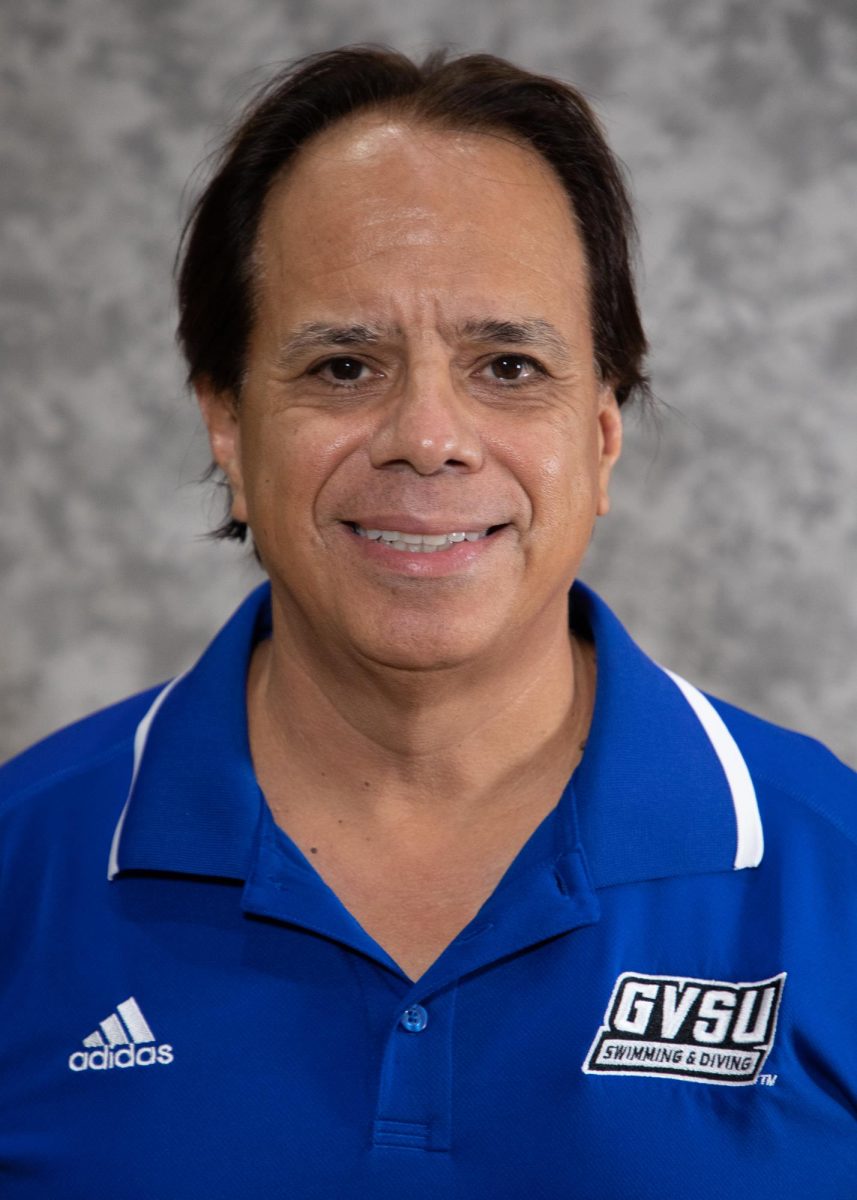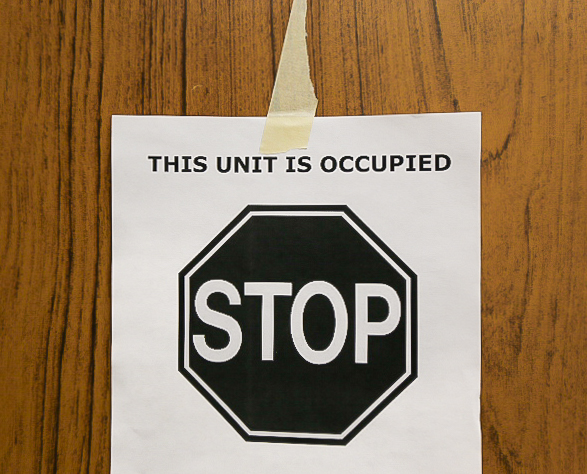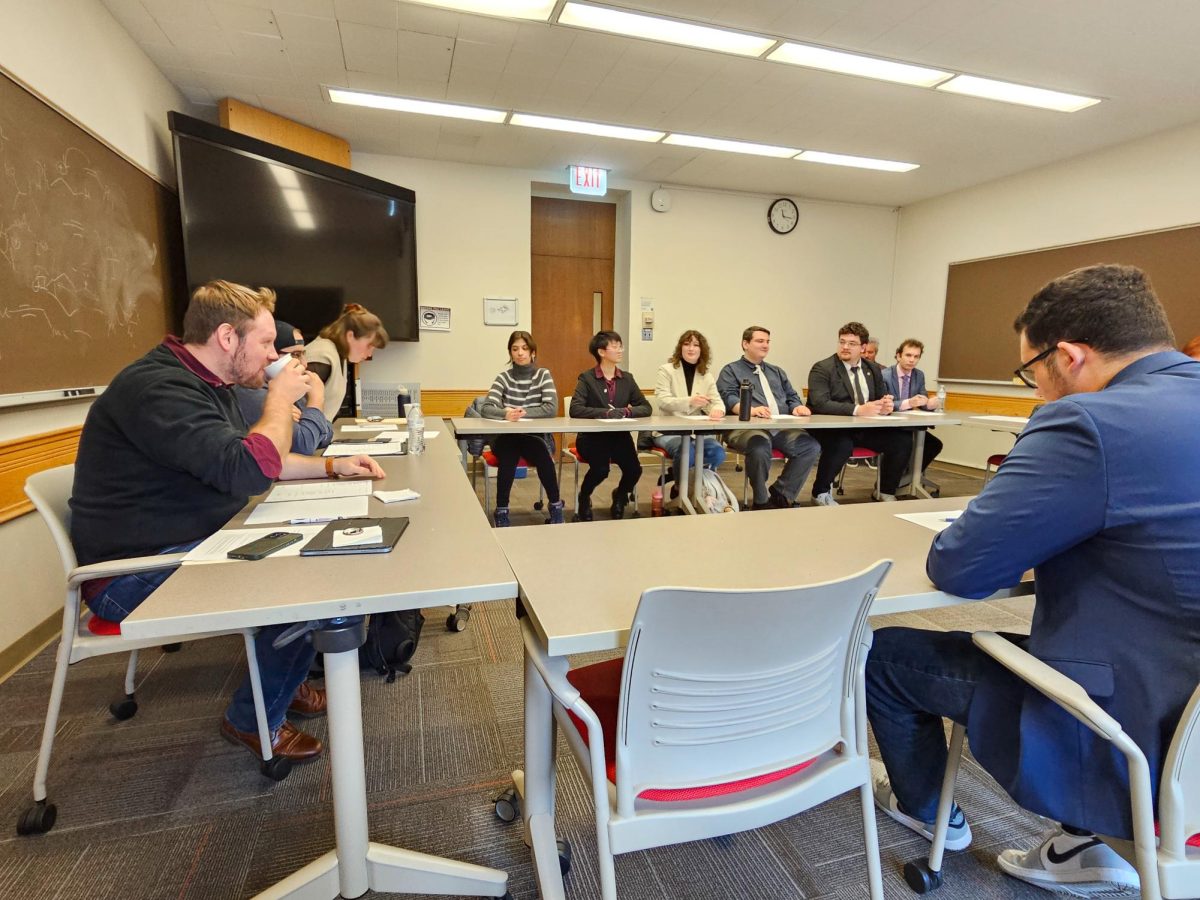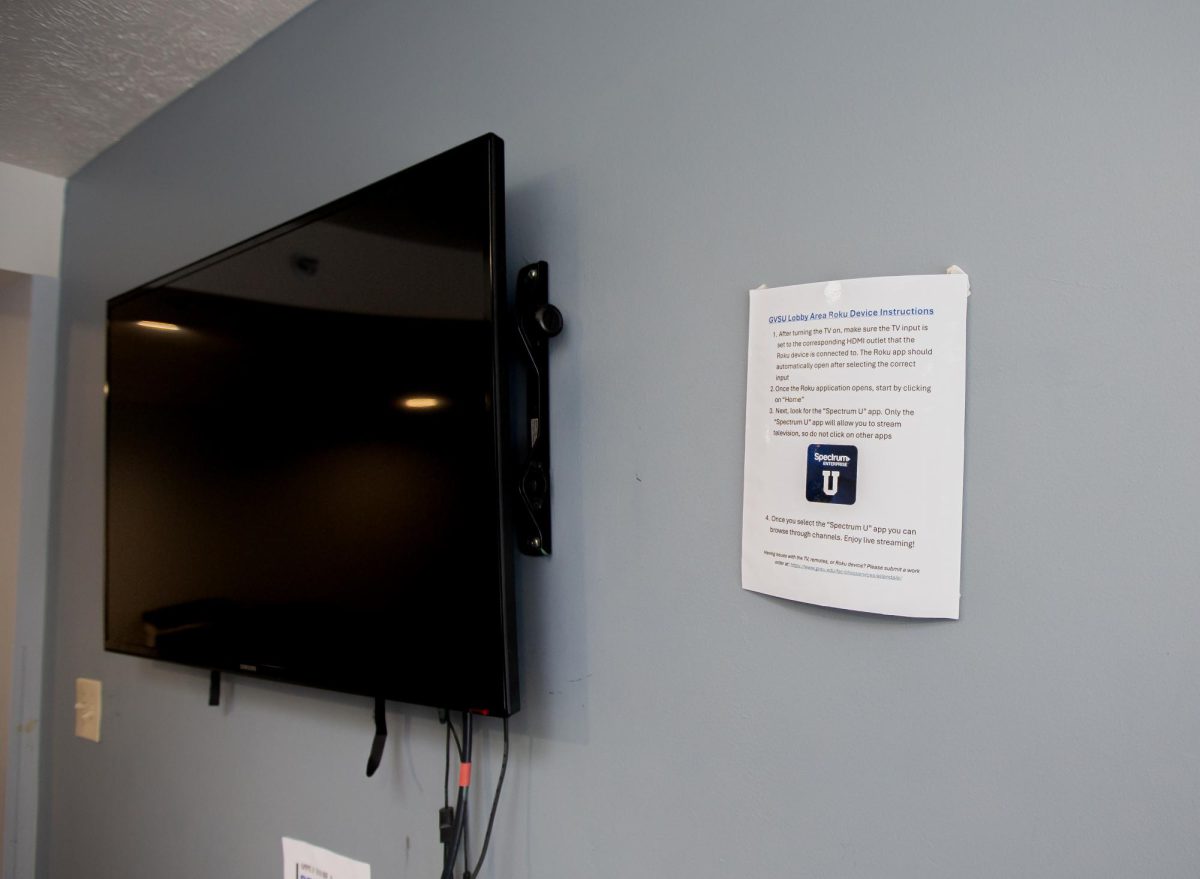UAS approve early tenure language, discuss requirement changes
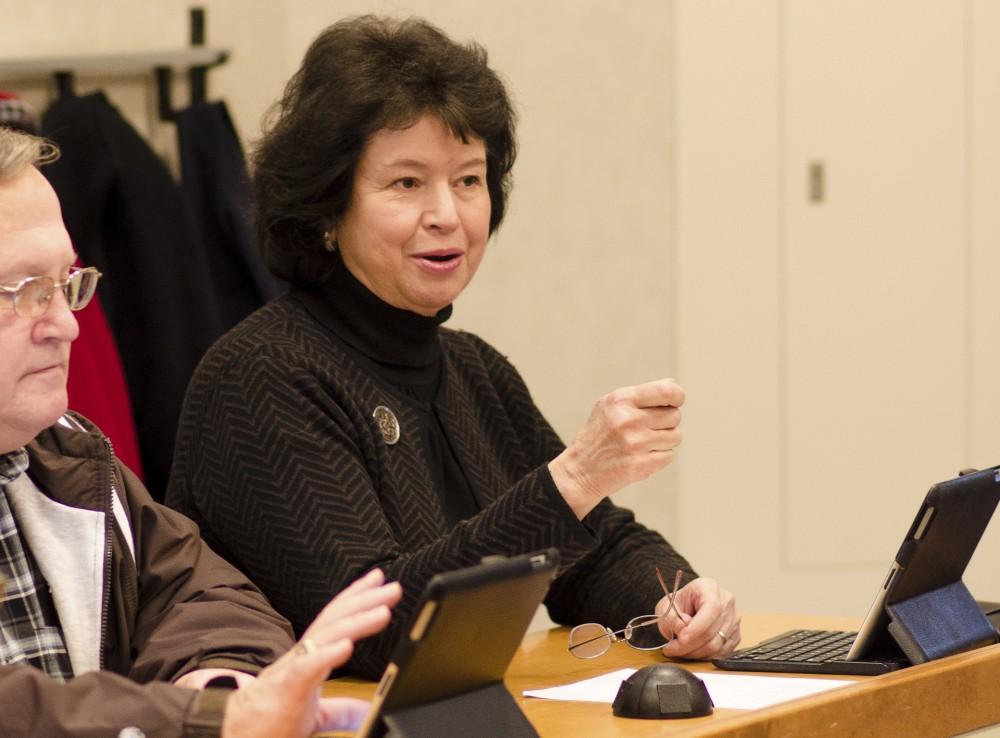
GVL/Bo Anderson Provost Gayle Davis speaks during a previous meeting
Mar 31, 2013
The University Academic Senate meeting approved new language in the administrative manual for early tenure and promotion of faculty and discussed the new changes in the general education program at Grand Valley State University.
Through a 21-16 vote, with one abstention, the senate approved a measure that clarifies language in the administrative manual for early tenure and promotion of faculty members during its March 29 meeting. In order to be considered for early tenure or promotion, the new language requires a faculty member to be able to demonstrate that they have exceeded expectations in the three evaluation areas of teaching, service and scholarship within their discipline.
“This was one of our charges this year, to look at the policies for early tenure and promotion,” said Kurt Ellenberger, chair of the Faculty Personnel Policies Committee. “FPPC reviewed those and made a recommendation to increase the criteria, or the expectations, to show that someone should have exceeded those to go up for early tenure or promotion, as opposed to having just done what they need to do in a shorter period of time.”
There have been inconsistencies across schools and departments at the university regarding what criteria a professor must reach to be considered for early promotion or tenure, senators said.
Prior to the changes approved by UAS, section 2.10.3 of the administrative manual states, “For promotion and tenure, faculty members will ordinarily follow the timelines outlined in Sections 2.5 and 2.7. However, faculty members may request, in writing to the Dean, to be considered by their unit for promotion at any time or for early tenure.”
Section 2.5 of the old administrative manual stated, “Ordinarily, at least five full time equivalent years at the rank of Assistant Professor must be completed before an Assistant Professor may be considered for promotion to Associate Professor.” The language is similar for promotion from associate professor to professor, with the number of full-time equivalent years being six.
“Right now they just look at it, (and) it says ‘ordinarily’ you must do this, and they look at it and say ‘well that’s no criteria at all so I’ll just go up,’” Ellenberger said. “We thought that it (the new language) put the onus on the person to make their case in a positive way, and also in a way that informs them what kind of case they have to make to go up for early tenure.”
Generally, two types of faculty enter the university: faculty that come in as assistant professors who recently received their credentials, or others who come from another university with time already served as faculty. For faculty coming from other universities, the professor can apply those years of credit toward tenure, or choose not to and become more acculturated to the university.
“We didn’t see that this left one or the other out on a limb,” Ellenberger said of the new language. “We just saw it as putting it in the person’s control and letting them know what they need to meet in order to go up for early promotion or tenure.”
Also at the meeting, Keith Rhodes, chair of the General Education Committee, reported to the senators on the implementation of the general education program changes.
“One of the problems that has come up with advisement is students just see this, and of course it’s a lot of information, and seem to have the assumption that we’re going to do things that will make life hard for them for some reason,” Rhodes said. “Instead, we have to field the question and continually tell them, ‘No, no we’re not adding a new requirement on top of your themes, we’re actually making it easy for you so you can now satisfy themes in multiple ways.’”
The main change for the general education program is a shift from themes to issues courses. As themes courses become phased out and replaced with issues courses, students under old catalogs may have difficulty finding themes courses to satisfy requirements.
The GEC addressed the situation by allowing students the ability to enroll in two themes courses, two issues courses or one of each to satisfy the requirement under the new general education program. That process will be available for eight years, and starting in 2014 students will take only issues courses.
Rhodes said the change from themes to issues was also a shift to a new way of teaching and assessing intellectual skills.
“We want to learn how to integrate general education intellectual skills, like the old ones of writing and oral communication, or like the new ones of ethical reasoning, quantitative reasoning, collaboration (and) problem solving,” he said. “We want to integrate those into the courses in such a way that, really for students, they’re just happening but they are learning new things—not simply working in groups, but being taught how to work better in groups and then working in groups.”
Robert Henderson, chair of the psychology department, raised concerns about the availability of open seats for courses, which gave some students registration problems in the past when the university switched to themes.
“It’s one thing to have enough courses in issues, but it’s another thing to have enough seats,” Henderson said.
With the new issues courses there will be no more category restrictions so students can choose from multiple areas, Rhodes said, which should help address capacity concerns.
The next UAS meeting will be April 12 in the DeVos Center on GVSU’s Pew Campus.
[email protected]




